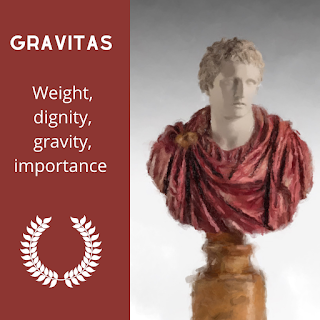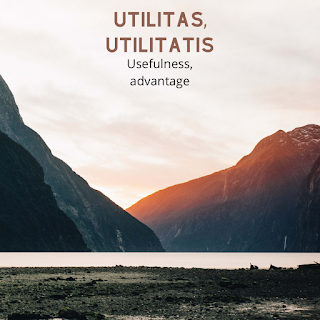Gravitas in Latin

Gravitas is the amount of power you would have in Roman politics and society. It’s the weight that your name carries. Our scientific word for downward acceleration of terrestrial bodies only came into use in the 1620’s. Gravitas is a noun and is third declension, case is nominative and it singular in number. It’s gender is feminine.





